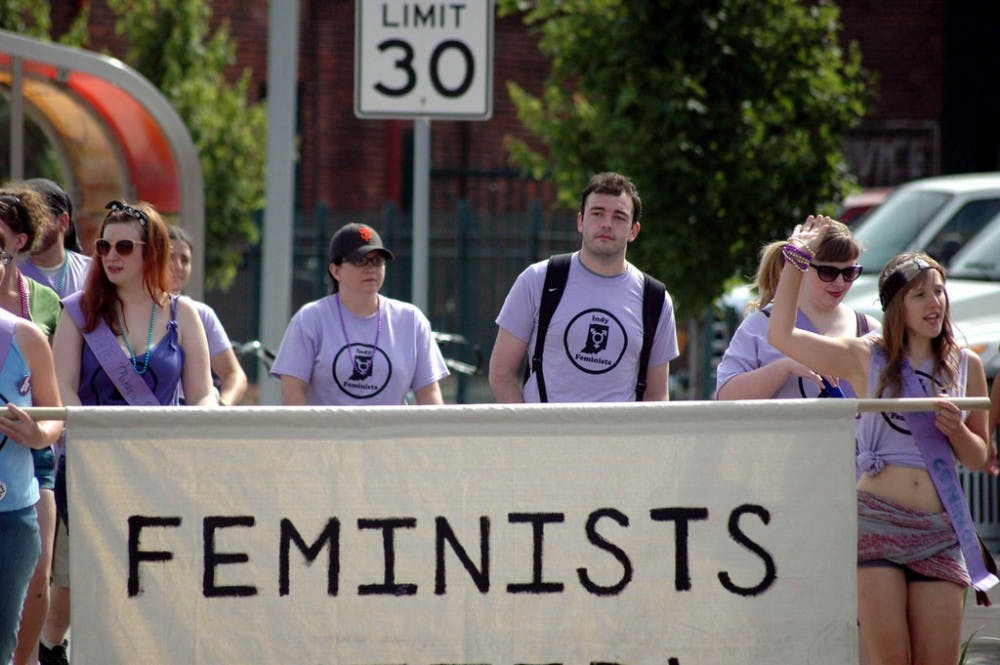Among those who identify as liberal, a certain type of man has emerged: he calls himself a feminist, has many female friends, and has donated to Planned Parenthood. He prides himself in his interest in gender, and shakes his head when another prominent man is revealed as a sexual harasser. He also interrupts the women in his precept, warns against going “too far” with believing sexual assault victims, and mansplains feminism.
Liberal men are not exempt from patriarchal influences, and lip service to feminist causes doesn’t mean anything if you are still perpetuating misogyny through your own behavior. This is not a criticism of liberal men as a whole, as there are many men on campus who contribute significantly to gender equality on campus, and their work is both noticed and appreciated. But it seems that in discussions of problematic male behavior, there are many men on campus who assume that — because they’ve taken Gender and Sexuality courses or are “so happy” that the head of their team, group, eating club, or government is a girl — they can’t be part of the problem.
Yet this blind spot guarantees that the problems that hurt and frustrate women on this campus will continue. Checking your privilege has become cliché in activist-speech, but it takes doing an inventory of your own behavior and how it may be harming the women around you — and the same goes for racist, homophobic and transphobic behaviors — to ensure that you are living up to the principles you preach.
Check if you are interrupting the women in your precept, or if you and the other men in the classroom are dominating the speaking time. Studies have shown that male students take up anywhere from five to nine times as much speaking time as female students in the classroom. Yet research also shows that people overestimate how much women speak. Women have been asserting their experiences of interruption on campus over and over, in this newspaper and in the classroom, yet nothing seems to be changing. It may be because the people doing the interrupting aren’t listening.
Interrupting or ignoring female students’ contributions and explaining over them the exact information they were attempting to convey is not an insignificant act in the classroom or workplace. Even if it is subconscious, it exploits societal biases that value male contributions more with the result of co-opting another student’s ideas. Women at every level, regardless of their career success, have pointed out this trend. Women in the (liberal!) Obama administration developed a tactic of “amplification” to prevent male staffers from stealing credit for their ideas. Clearly these women have incredible credentials validating their contributions, yet they too experienced the frustration of a male colleague repeating their idea and receiving the credit. Women don’t seem to do this to men, so it is clearly a gendered issue. Everyone needs to work on respecting others in a discussion setting, but it is especially frustrating when a man who benefits in liberal circles from the feminist label also perpetuates these trends to his benefit in the classroom.
Another crucial factor is calling out male friends who demonstrate sexist behavior. Remaining an uncritical friend of chronic street harassers and sexist joke-makers implicitly supports those acts and allows them to continue. The reason Prospect Avenue often feels like a treacherous place for female students is because a few men act in sexually predatory ways, and many men look the other way. The bystander effect, or the tendency to feel reduced personal responsibility to intervene when other bystanders are present, is especially applicable to sexual assault cases where there is already a patriarchal pressure on men to support aggressive behavior. The implications of turning a blind eye to this behavior on campus are staggering: college women are three times more likely to experience sexual assault than women as a whole.
Less dramatic behavior, such as telling sexist jokes or making derogatory comments about women, is also more likely to be observed by other men — women aren’t present for “locker room talk.” If all men who claimed the feminist label spoke against this behavior, it would significantly reduce the impact of this subtle misogynistic culture. The percentage of Americans expressing views that support gender equality achieved an all-time high in 2016, yet this behavior has not abated. Clearly those who offer verbal support have not taken the concrete steps to realize those ideals.
Those who purport to be feminists have already stated that they want equality between the sexes; all I am asking is that you follow through on that claim. You have an opportunity to further the cause you already own a laptop sticker for — listen when women tell you there’s a problem, and actually check if that problem could include you.

Madeleine Marr is a sophomore from Newtown Square, Pa. She can be reached at mmarr@princeton.edu.









